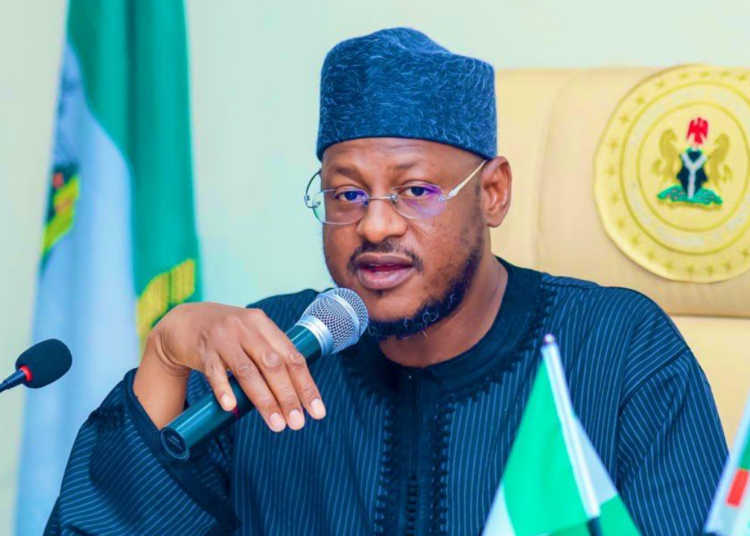Katsina State Governor, Dr. Dikko Radda, has officially launched a new climate-smart agribusiness initiative designed to support smallholder farmers across the state. The program, valued at N100 million, aims to transform farming practices by promoting climate-resilient and commercially viable agriculture.
The launch event, held on Wednesday, was conducted in partnership with the African Union Development Agency-New Partnership for Africa’s Development (AUDA-NEPAD). NEPAD contributed N63.75 million towards funding the program, with the Katsina State Government providing an additional N36.25 million as a counterpart fund.
Governor Radda described the scheme as a significant step toward inclusive agricultural development in Katsina, with a strong focus on transitioning farmers from subsistence farming to commercial production using smarter techniques adapted to climate challenges.

“This initiative represents a strategic investment in our people, economy, and future,” Governor Radda said. “Our goal is to empower farmers to embrace innovative, climate-resilient approaches to increase productivity and profitability.”
The governor also urged agricultural extension workers and other stakeholders to ensure the proper use of resources and training provided under the program. He emphasized the importance of continuous monitoring and evaluation to track progress and prevent resource wastage.
Hon. Salisu Tsauri, the national coordinator of AUDA-NEPAD in Nigeria, highlighted the broader significance of the initiative, noting that it aligns with continental agricultural priorities outlined in the African Union’s Agenda 2063.
“This program offers more than just financial support it provides access to quality inputs, improved seeds, modern tools, knowledge sharing, and market linkages,” Tsauri said.
Maryam Sodangi, Senior Special Assistant to the Governor on Sustainable Development Goals (SDGs), spoke on the long-term objectives of the initiative, stressing the importance of building farming systems that can withstand environmental changes.
“Our vision is to establish a foundation for food security by promoting climate-smart agriculture, ensuring that farming remains viable despite evolving environmental challenges,” Sodangi stated.
The program aims to boost farmers’ access to improved seeds, farming equipment, technical knowledge, and market opportunities, ultimately enhancing food security and increasing incomes at the grassroots level in Katsina State.




